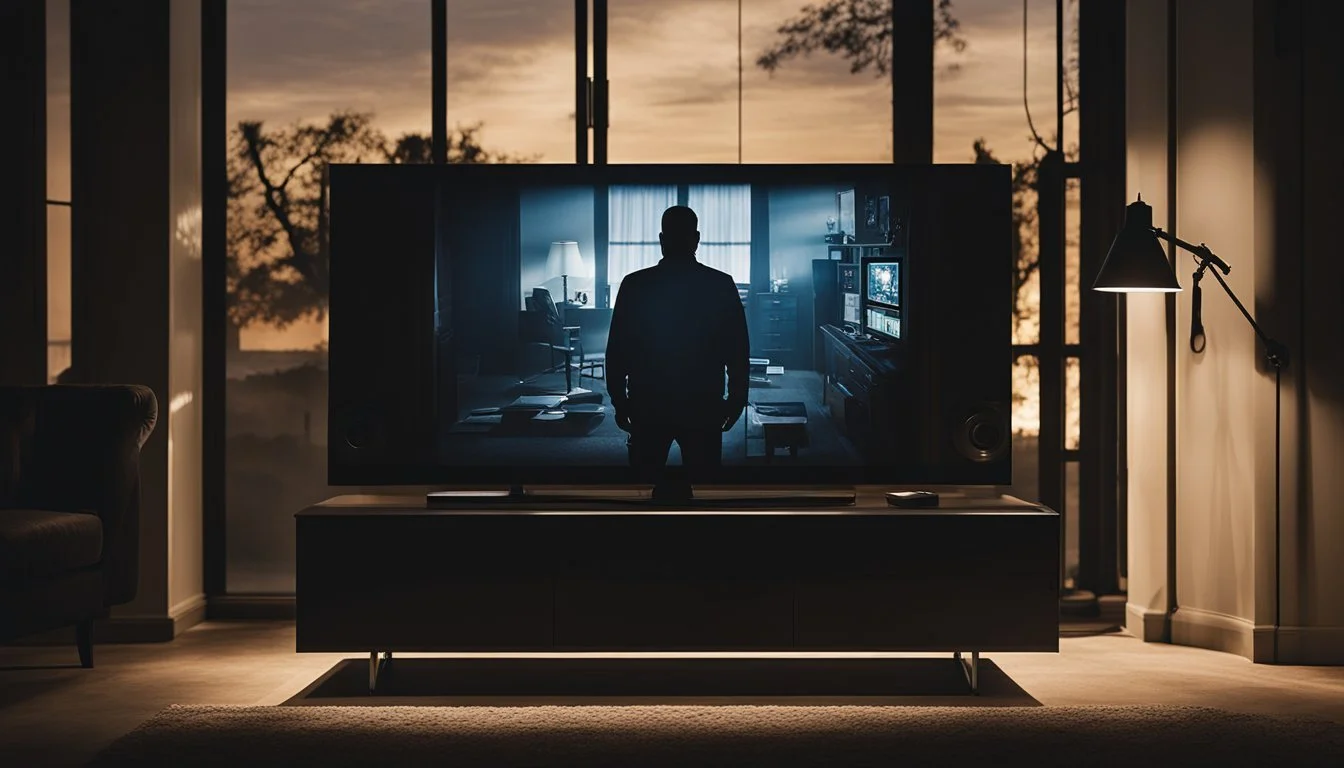5 True Crime Documentaries from Massachusetts That Will Haunt Your Nightmares
Massachusetts, known for its rich history and picturesque landscapes, has also been the backdrop for some of the most unsettling true crime stories. These tales, now immortalized in gripping documentaries, provide an eerie glimpse into the darker side of this esteemed state. What compels attention is how these documentaries unravel the chilling and often perplexing cases that have left an indelible mark on Massachusetts.
Featuring a mix of infamous murders, mysterious disappearances, and puzzling mysteries, these true crime documentaries offer viewers both suspense and an insight into the complex workings of criminal investigations. Each film not only recounts the harrowing events but also sheds light on the profound impact they had on local communities, prompting both intrigue and reflection.
1) Trial 4 (2020)
"Trial 4" is a gripping true-crime documentary series that premiered on Netflix in 2020. Directed by Rémy Burkel, the series focuses on Sean K. Ellis, who was charged as a teenager with the 1993 murder of Boston police officer John J. Mulligan.
Ellis spent over two decades fighting for his freedom, maintaining his innocence throughout. The documentary examines the investigation and court proceedings, shedding light on Ellis's journey to clear his name.
The series also highlights systemic issues within the criminal justice system, including police corruption and racial bias. These elements add depth to Ellis's personal story, illustrating broader societal problems.
"Trial 4" spans eight episodes, each uncovering different facets of Ellis's case and the institutional challenges he faced. This makes it a compelling watch for those interested in true crime and social justice.
For more information, please visit Wikipedia.
2) Boston Strangler
The Boston Strangler was a serial killer who terrorized Boston between 1962 and 1964. The perpetrator was responsible for the deaths of 13 women, aged 19 to 85.
The murders were characterized by sexual assault and strangulation. Despite numerous investigations, the true identity of the Boston Strangler remains uncertain.
In 2023, Hulu released a true crime film titled "Boston Strangler," which delves into this chilling case. Keira Knightley stars as Loretta McLaughlin, a reporter who delved into the connections between the murders.
The film highlights the difficulties faced by investigators and the impact of media coverage on the case. It provides a gripping depiction of the era's atmosphere and the challenges in solving such a complex case.
For more information on the film, visit IMDb (2023).
3) Lost Girls: An Unsolved American Mystery (2020)
Based on the 2013 book by Robert Kolker, "Lost Girls: An Unsolved American Mystery" delves into the chilling true story of the Long Island serial killer. This documentary shines a light on the lives of five sex workers who were murdered, revealing the systemic failures that allowed the killer to elude capture.
The film highlights Mari Gilbert's relentless search for her daughter, Shannan, whose disappearance sparked the investigation. Her determination exposes corruption and indifference within the police force, emphasizing the broader societal neglect of marginalized women.
"Lost Girls" is not just about the hunt for a killer; it scrutinizes a society that often overlooks its most vulnerable. The haunting story remains unresolved, adding to the film's tragic impact.
For more information on "Lost Girls," visit its IMDb page.
4) The Real Killer: The True Story of JonBenét Ramsey
The 1996 murder of JonBenét Ramsey, a six-year-old child beauty contestant, remains one of the most perplexing and heavily publicized cases in U.S. history. Found dead in her family's Boulder, Colorado home, the case has seen numerous theories, investigations, and media speculations.
Twenty-five years later, advances in DNA testing and a renewed focus by investigators have brought fresh attention to the case. A significant amount of evidence, including a lengthy handwritten ransom note and extensive DNA profiles, continues to fuel both professional and public interest.
Recent developments suggest that new evidence might finally reveal the identity of JonBenét’s killer. A dedicated cold case team has reexamined critical pieces of evidence, offering a glimmer of hope that the mystery could be solved.
For those interested in deep-diving into this tragic and enduring case, "The Real Killer: The True Story of JonBenét Ramsey" explores every twist and turn with meticulous detail. It’s a must-watch for true crime aficionados seeking comprehensive insights into one of America's most infamous unsolved murders.
5) The Case Against Adnan Syed (2019)
"The Case Against Adnan Syed" is a true-crime documentary series directed by Amy J. Berg and produced by Working Title Television.
The series investigates the 1999 murder of Baltimore County high school student Hae Min Lee. Her ex-boyfriend, Adnan Syed, was convicted of the crime.
This story gained widespread attention through the "Serial" podcast, which questioned the evidence and legal procedures used in Syed's conviction.
The four-part series on HBO delves deep into the case, exploring legal irregularities, new forensic evidence, and other factors contributing to Syed’s release in 2022 after his conviction was vacated.
The documentary features interviews with people close to the case, shedding light on the complexities and controversies surrounding it.
More information on The Case Against Adnan Syed: IMDB
Historical Background of True Crime in Massachusetts
Massachusetts holds a significant place in the history of true crime in the United States. From the early days of its colonial past to notorious cases in the 20th century, this state has witnessed a wide range of criminal activities that have both shocked and fascinated the public.
Colonial Crime and Punishment
During the colonial period, Massachusetts adhered strictly to English common law. Public punishments were common, and the judicial system was heavily influenced by Puritan beliefs. Witchcraft trials, like the infamous Salem Witch Trials of 1692, are among the most well-documented cases from this era.
Crimes such as theft, adultery, and blasphemy were harshly punished. Methods included public shaming, whipping, and executions. The Puritans believed these severe punishments were needed to maintain moral order in the community. This period laid the groundwork for the state’s evolving legal framework.
Notorious Cases from the 20th Century
The 20th century in Massachusetts saw a shift from colonial-style justice to more modern criminal investigations and trials. One of the most infamous cases is the Boston Strangler, Albert DeSalvo, who confessed to the murder of 13 women in the early 1960s.
Another high-profile case was the murder of Charles Stuart’s wife in 1989. Stuart claimed they were carjacked, but it was later revealed he had committed the crime himself, causing a major scandal.
These cases highlighted flaws in law enforcement and judicial processes, leading to significant reforms. They also received extensive media coverage, cementing their place in American true crime history.
The Social Impact of True Crime Documentaries
True crime documentaries have significant effects on society by shaping public perception and influencing legal reforms. These impacts extend beyond entertainment, affecting real-world views and policies.
Influence on Public Perception
True crime documentaries often shape how the public views crime and the criminal justice system. Viewers frequently develop strong opinions about cases based on the documentaries they watch. This can affect trust in the justice system and lead to increased awareness about wrongful convictions.
The storytelling techniques, such as using victim interviews and reconstructions, can evoke strong emotional reactions. This power in storytelling can result in a heightened sense of vulnerability among viewers and a stronger call for justice and reform.
In some cases, these documentaries may sensationalize crime, leading to misconceptions about crime rates or types of crime that are most prevalent. Thus, they play a crucial role in shaping societal norms and expectations related to crime and punishment.
Contributions to Legal Reforms
True crime documentaries have also been instrumental in advancing legal reforms. Some high-profile documentaries have prompted reinvestigations of cold cases or potential miscarriages of justice. This can lead to new trials, acquittals, or changes in law enforcement practices.
Public pressure, driven by increased awareness from documentaries, often forces legislative bodies to reconsider statutes and policies. Cases like the one presented in "Making a Murderer" have spurred debates on the fairness of the justice system, influencing policy changes aimed at preventing future injustices.
Additionally, through shedding light on systemic issues, these documentaries push for transparency and accountability among law enforcement agencies, promoting legal reforms that aim to enhance the integrity of criminal investigations and judicial processes.
Ethical Considerations in True Crime Media
True crime media raises significant ethical questions, particularly regarding the privacy of victims and the responsibilities of filmmakers. The portrayal of real crimes can affect both the individuals involved and public perception.
Victim Privacy and Sensationalism
Protecting the privacy of victims is paramount in true crime media. Exposing personal details can harm victims or their families, leading to secondary trauma. Sensationalizing the narrative to attract viewers can further exploit their suffering. Ethical concerns arise when the line between informing and entertaining blurs, risking the dignity and well-being of those affected.
Documentaries must balance the need for public awareness with the rights of individuals, ensuring accurate and respectful representation without unnecessary dramatization. Responsible storytelling prioritizes empathy and factual reporting over sensationalism.
The Role of Filmmakers
Filmmakers hold significant power in shaping narratives within true crime media. They must navigate the ethical landscape with care, avoiding the temptation to sensationalize for ratings or views. The responsibility includes verifying facts, presenting balanced perspectives, and steering clear of glorifying or trivializing criminal acts.
The goal should be to inform and educate the audience while maintaining respect for all parties involved. Filmmakers can contribute positively by using their platforms to highlight issues such as systemic flaws in criminal justice, rather than merely exploiting sensational details for entertainment.







